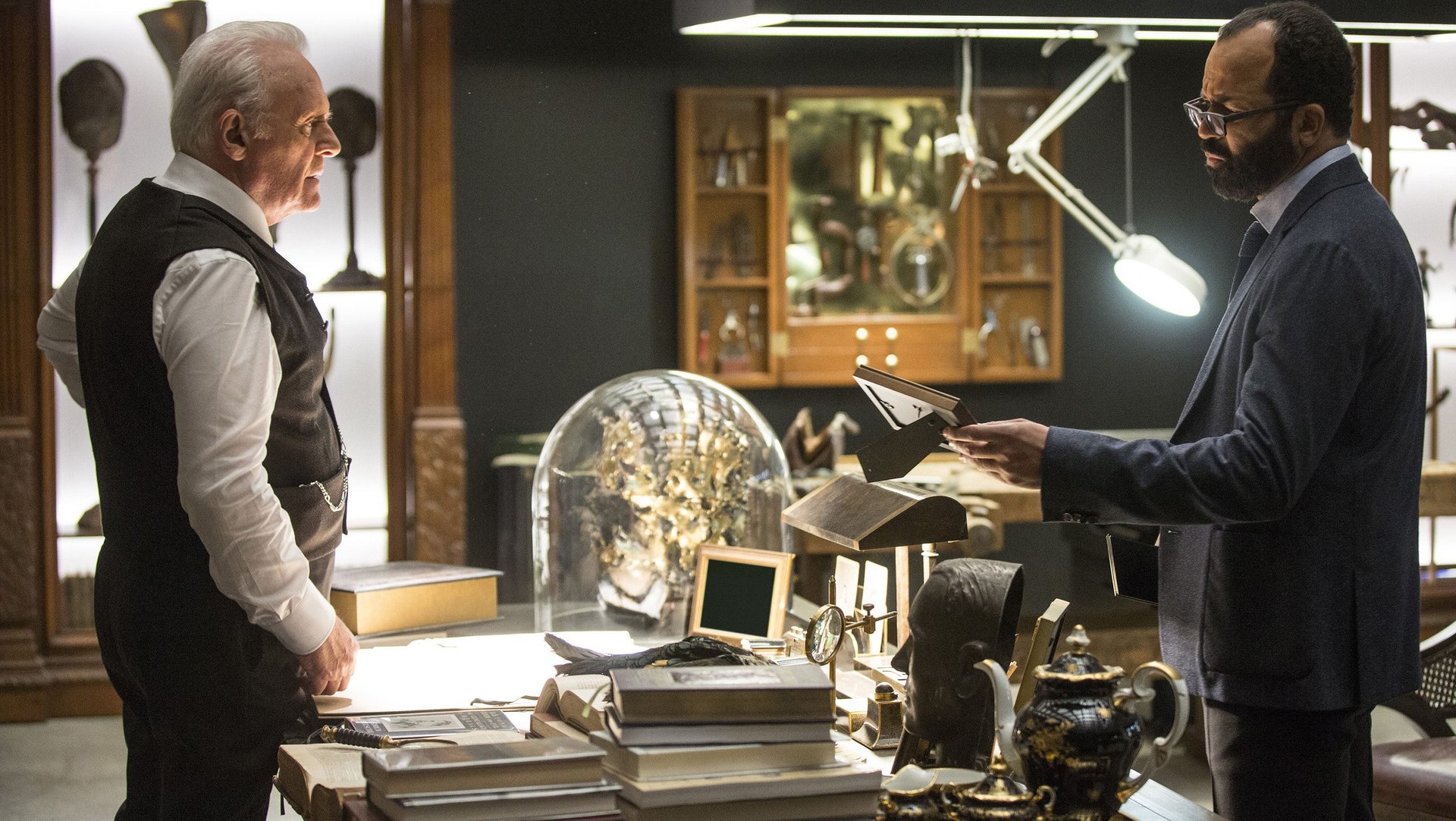“Westworld” proved last night that twists don’t have to be shocking to be satisfying
This story contains spoilers from the most recent episode of HBO’s Westworld.


This story contains spoilers from the most recent episode of HBO’s Westworld.
It is as the Westworld diehards predicted: Bernard, the restrained, introspective chief programmer of the titular theme park’s robots, is, in fact, a robot himself.
Casual viewers of the HBO show—the ones who don’t discuss theories on Reddit, read endless recaps, analyze screenshots, and listen to podcasts—may have been surprised by the plot twist. The diehards, though, who do all of those things and more, saw it coming a mile away. Weeks ago, fans began theorizing in earnest that Bernard is really a “host” (The name park employees and guests use for Westworld’s robots). Some even guessed as much after the show’s first episode, over a month ago.
Viewers might equate surprise with satisfaction, but the two emotions often don’t correlate. Consider stories told in the mold of M. Night Shyamalan’s films, which frequently employ twists for the sake of having a twist. This tactic is disingenuous at best, undermining the emotional impart of a narrative.
Surprising TV twists, thus, aren’t inherently satisfying (take, for instance, the end of Dexter), while some of the most convincing ones—that is, the twists that make sense and advance the story in a meaningful way—aren’t always shocking.
Last night, Westworld proved a case of the latter. The reveal that Bernard is a host seemed to surprise few, but was still compelling television.
For me, the twist reframed how I understand the park’s humanlike hosts. Up until last night, I’ve had trouble caring about what happens to the hosts. They’re robots, after all—they can be rebuilt and reprogrammed. They can be made to feel no pain, remember only certain things. I’ve grown to care about Bernard, meanwhile, because I believed he was human. To learn he’s not was destabilizing in the best way, and proves that I had actually cared about a host all along without knowing it.
That echoes the experience of one of the show’s human characters, William, who visits Westworld with skepticism but eventually develops genuine feelings for Dolores, a host. In most visitors, the park elicits their basest desires, their most animal instincts. But, in William, it revealed something deeper.
“You’re a fucking monster,” Theresa Cullen, Westworld’s quality assurance manager, says to the park’s cunning creator, Dr. Robert Ford, when she discovers Bernard (who she’s been sleeping with and has developed a deep, meaningful relationship with) is a host.
“Am I? But you were the one who would so blithely destroy all of them,” he replies, as Bernard looks on in confusion. “Even him I suppose, after everything you have shared.” Cullen was sent by Westworld’s board of directors to keep Ford in check, and was plotting to have him—and his ambitious story lines—replaced.
In that moment, Ford is talking to the audience, too. Those of us who could not see the hosts as worthy of concern are complicit in the horrible things that happen to them, and the even worse things they’re made to do.
But more than that, the big move Westworld made was effective because of the trail of breadcrumbs the show’s writers have left for us all season. In that way, it worked precisely because it wasn’t surprising. The best twists—like the reveal at the end of the second season of another HBO show, The Leftovers—are the ones that make you say to yourself, “Oh, of course that’s what happens.”
The Bernard twist surprised me because I binge-watched several Westworld screeners in a row last week—without once checking social media in between episodes. It was not until after I watched the latest episode did I go on Reddit and see that fans had correctly guessed the twist, though they didn’t know it yet.
But what I also found was there’s almost no one on Reddit grappling with the much more important questions that the twist raises: What does it mean that Bernard is a host and not a human? What’s the show saying about the human experience, about consciousness, and about the morality of bringing artificially intelligent beings into this world?
The TV hive-mind theory machine, driven by social media, has forced people to watch shows in order to find out what happens next, not to learn what things mean. And whether intentional or not, Westworld is both responding to that trend and training its fans to expect these kinds of twists more often, undermining their ability to remain effective in the future.
This twist may have worked, but it doesn’t mean that others will. Now that one major twist is in the bag—and proved the fans right—those obsessed with figuring out the show will only become more emboldened to do so, perhaps at the expense of a more meaningful conversation about what the show’s trying to say. Maybe the best way to experience the story organically is to not be so invested in it.